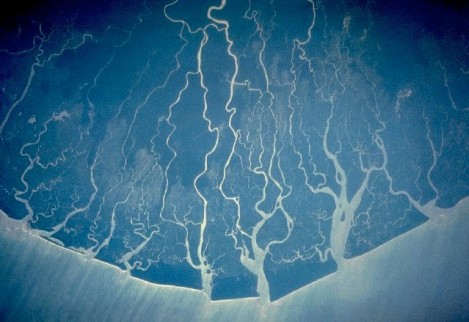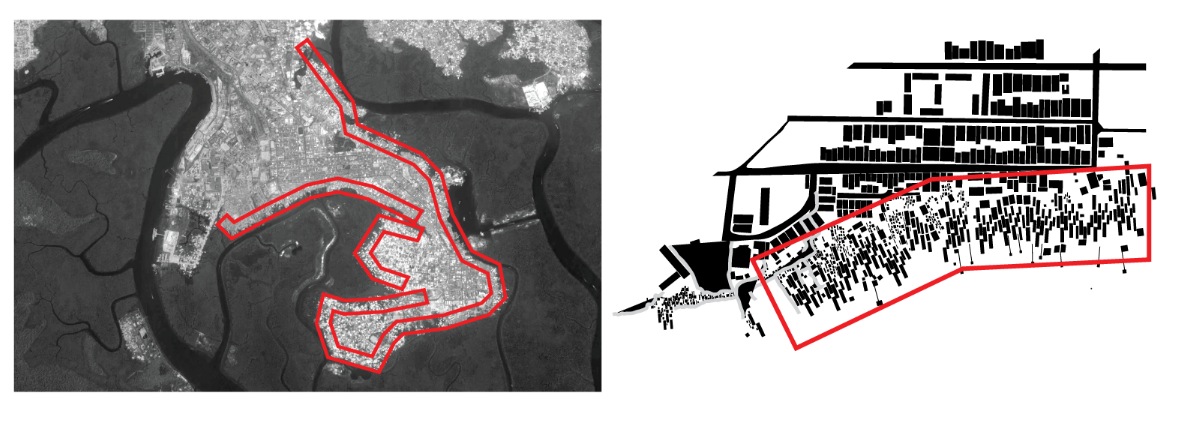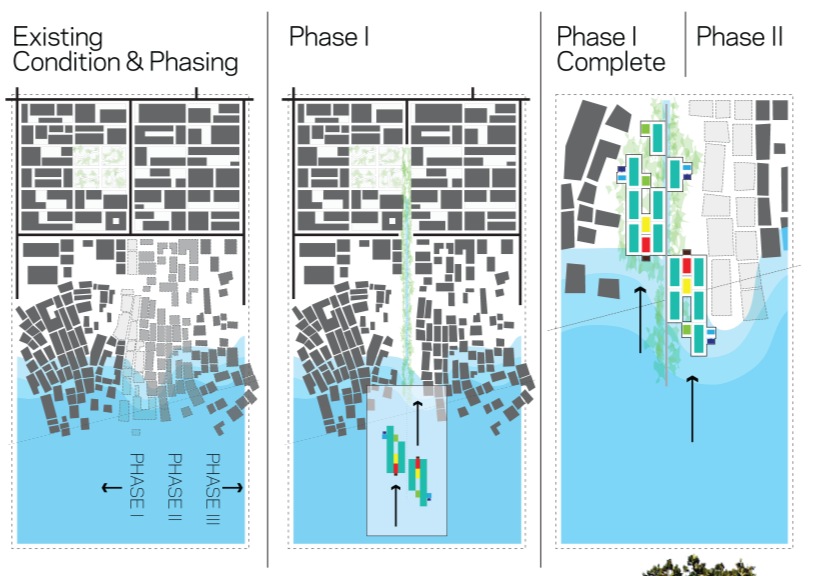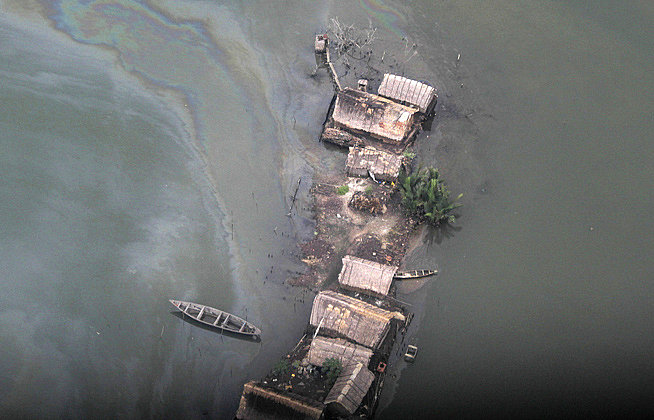 Process is a key part of the design. Floating platforms are immediately inhabitable and modularity allows for communities and extended families to remain intact. This incremental process minimizes social disruptions associated with conventional massive slum clearance . Once waterfront restoration has been completed, modules can be permanently moored closer to the shore within the mangrove corridor. A cornerstone of this wetland ecosystem, mangroves prevent erosion, provide habitat, as well as process carbon dioxide and other pollutants. Under normal conditions, mangroves respond to rising sea levels by retreating inland to a location where the water is sufficiently brackish. However, the current static, hard urbanism of Port Harcourt is incompatible with mangrove ecology and prevents the rhizomes from penetrating the urban fabric with rising salt water tides. This condition, combined with reckless oil spilling put the vital wetlands ecosystem in jeopardy. Beyond merely an architecture of compromise and coexistence, our proposal is for an urbanism of symbiosis that recognizes the importance of the mangrove rhizome as fundamental to the survival of all life in the Niger Delta. Floating module assemblages mimic mangrove ecology, and floating gardens aid in water purification. Further, corridors penetrate Port Harcourt’s urban grid to allow mangrove rhizomes to reclaim space in the existing park system.
Process is a key part of the design. Floating platforms are immediately inhabitable and modularity allows for communities and extended families to remain intact. This incremental process minimizes social disruptions associated with conventional massive slum clearance . Once waterfront restoration has been completed, modules can be permanently moored closer to the shore within the mangrove corridor. A cornerstone of this wetland ecosystem, mangroves prevent erosion, provide habitat, as well as process carbon dioxide and other pollutants. Under normal conditions, mangroves respond to rising sea levels by retreating inland to a location where the water is sufficiently brackish. However, the current static, hard urbanism of Port Harcourt is incompatible with mangrove ecology and prevents the rhizomes from penetrating the urban fabric with rising salt water tides. This condition, combined with reckless oil spilling put the vital wetlands ecosystem in jeopardy. Beyond merely an architecture of compromise and coexistence, our proposal is for an urbanism of symbiosis that recognizes the importance of the mangrove rhizome as fundamental to the survival of all life in the Niger Delta. Floating module assemblages mimic mangrove ecology, and floating gardens aid in water purification. Further, corridors penetrate Port Harcourt’s urban grid to allow mangrove rhizomes to reclaim space in the existing park system.
According to the recommendations by the Abonnema Wharf Homeowners, our modular design encourages urban decentralization and economic autonomy of homeowners’ and residents, while providing acceptable levels of sanitation and other amenities unseen in slum development. As cited in the Homeowner’s proposal, the heavy hand of modern architecture has proven ineffective in long-term social change unless it addresses the root causes of poverty. Because the centralized, rationalist organization of the Modern city cannot not account for the dynamism of its environment, or even inhabitants, we embrace a solution of informality and flux . Our intervention is not a panacea for the social and environmental crisis in the Niger Delta. However, by developing and highlighting conditions of interaction and interdependence between social and ecological systems, a landscape of destruction can be overcome and the effects of rising tides associated with climate change mitigated.










